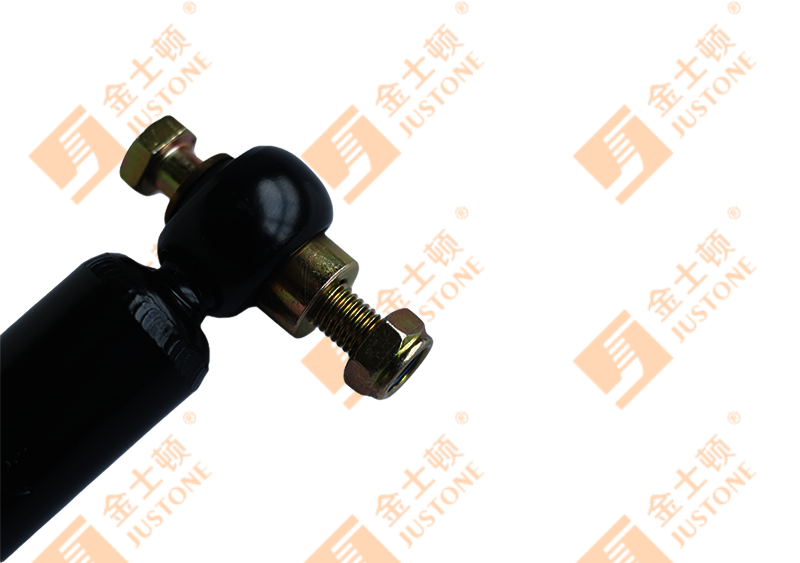Didn't find a product that suits you?
Contact us for the latest news.
Trailer coupling dampers play a crucial role in ensuring a smooth, stable, and safe towing experience. These components are especially important in trailers with overrun brakes (common in European systems), where the coupling damper absorbs the compressive forces generated when the towing vehicle slows down. Over time, however, these dampers wear out, reducing their effectiveness and potentially compromising driving comfort and safety. So, how often should trailer coupling dampers be replaced?
Understanding the Function of a Trailer Coupling Damper
To know when replacement is needed, it's essential first to understand what the damper does. When a vehicle brakes, the trailer naturally wants to continue moving forward due to inertia. In trailers with overrun brakes, the trailer coupling compresses, activating the brakes. The damper controls the rate of this compression to prevent sudden or jerky brake engagement. Without a properly functioning damper, the braking force can become harsh or uneven, leading to increased wear on components and a rough driving experience.
In addition to braking comfort, the damper also helps prevent oscillation (trailer sway), improves towing stability, and reduces stress on the hitch system.
Typical Lifespan of a Trailer Coupling Damper
The lifespan of a trailer coupling damper depends on several factors:
Frequency of use: The more often you tow, the more often the damper is activated and thus worn down.
Trailer weight: Heavier trailers put more strain on the damper.
Driving style: Aggressive braking and frequent stop-and-go traffic increase wear.
Road conditions: Rough terrain or bumpy roads can shorten damper life.
Maintenance habits: Well-maintained trailers tend to have longer-lasting components.
On average, most trailer coupling dampers last between 30,000 to 50,000 kilometers (about 18,000 to 31,000 miles). In terms of time, that usually means every 5 to 7 years, assuming normal usage.
However, if you’re towing frequently or carrying heavy loads, it's possible you may need to replace the damper every 3 to 5 years.
Signs Your Trailer Coupling Damper Needs Replacement
Rather than relying solely on mileage or time, it's best to watch for specific signs that your damper may be failing:
Jerky Braking Movements: If the trailer pulls or pushes aggressively during braking, the damper might not be absorbing enough force.
No Resistance When Pushing the Coupling In: The coupling should compress with resistance. If it feels too soft or too hard, the damper could be worn out or seized.
Unusual Noises: Clunking, banging, or metallic sounds when towing or braking can indicate that the damper is no longer cushioning the coupling movement properly.
Increased Trailer Sway: If your trailer feels less stable or begins to sway more during towing, it could be due to a worn damper.
Visible Fluid Leaks: Some dampers are hydraulic. If you notice oil or hydraulic fluid near the coupling area, the damper may be leaking and needs replacement.
Unusual Brake Behavior: Delayed braking or inconsistent brake pressure from the trailer system can also point to damper issues.
Inspection and Maintenance Tips
To extend the life of your trailer coupling damper and ensure safe towing, regular inspection is important:
Check at least once per year or every 10,000 km (6,000 miles), especially before long trips.
Test the coupling by compressing it by hand (if possible). It should move smoothly with consistent resistance.
Listen for noises or feel for play in the coupling that could indicate internal damper failure.
Lubricate moving parts (as specified by the manufacturer), but avoid over-greasing or contaminating the damper.
Inspect the overrun brake system for uneven wear or rust, which might indicate damper issues.
Replacement: DIY or Professional?
Replacing a trailer coupling damper is a relatively straightforward mechanical task for those with basic tools and mechanical knowledge. However, because it directly affects braking performance and safety, it’s vital to follow the manufacturer’s specifications closely.
If you're unsure or uncomfortable performing the replacement yourself, it’s advisable to have it done by a trailer mechanic or at a service center.
Most dampers cost between $50 to $150 USD, depending on the make and model. Labor costs may add $100–$200 if done professionally.
While trailer coupling dampers aren’t components most people think about regularly, they are essential for safe and smooth towing. Ignoring a worn damper can lead to:
Poor braking performance
Unstable towing
Increased wear on the braking system
Risk of accidents
To stay safe and protect your towing equipment, make it a habit to check the condition of your damper annually and replace it roughly every 30,000–50,000 kilometers, or every 5–7 years, depending on usage.
